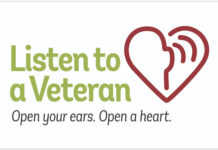When the car bomb exploded, it sent a wave of carnage and destruction through the market. Bodies were everywhere, the screaming, the blood… I was the medic responding to the scene; life and death would lie in my hands as seconds would seem like minutes and minutes like hours.
“Develop the situation, triage, assess, treat, evacuate,” I told myself. “You’ve been here before, focus.”
My heart started racing, my vision narrowed, I was in a tunnel and I knew exactly what to do.
When I was finally finished doing what I did best, all salvageable patients were treated and off of the scene. I saved who I could, while providing the best care possible in the worst environment imaginable. I was covered in blood, my heart was racing uncontrollably, my hands were shaking, and sweat was pouring from every pore of my body.
“Are you okay?” I heard someone ask. “David, are you okay?”
“Yeah, I’m good, give me a minute!”
It took me a few minutes to get my bearings again. Where was I? When I finally regained my senses, I realized that I was at the Medical Skills Simulation Training Center (MSTC) in Fort Wainwright, Alaska. I was not — as I had thought — in Iraq or Afghanistan. There was no threat, I was not in danger, and I could not differentiate between the false reality that had been in my head and where I actually was.
That Flashback Was the Final Straw
That was the event that pushed my military career over the edge. It triggered my Medical Evaluation Board, which assessed my capacity to serve, and thus my retirement from the Army. Prior to this, I had been in therapy and was seeking treatment, typically delivered in the form of various medications to control individual symptoms, but this simulated scenario at the training center pushed me to a breaking point, and it was all witnessed live by the evaluation team on closed circuit monitors.
This wasn’t the first time that I had lost contact with reality.
A year earlier, my wife woke to find me ‘patrolling’ the house with our 8-year-old son in a fireman’s carry, as I was seemingly attempting to move him to safety.
“David, what the hell are you doing?” she asked in fear. “What’s going on?”
I turned toward her. “Back off!” I growled. Then I continued my patrol.
The next morning the conversation opened up, “You CANNOT take Ambien any more, David!”
“Why?”
“You don’t remember last night?”
“No, why? I slept fine!”
I had been moving toward this desperate place for some time. And it was my medical treatment with drugs that had pushed me along.
What Has My Life Become?
I was a soldier for roughly 20 years. I spent seven years in the Reserves before transitioning to active duty in 2000. I served as a combat medic throughout my military career. I jumped on every chance to excel in my career field, attending advanced trainings whenever possible. From Air Force Hyperbaric School, Paramedic School, various Advanced Airway and Trauma programs, Advanced Burn Life Support, Army Mountain Warfare School, and the Counter Narcotics and Terrorist Operations Medical Support (CONTOMS) Course, I did everything I could to ensure I was the best field provider for America’s warfighters.
At the end of my career I was prescribed a cocktail of psychiatric medications. To sleep, I was prescribed Restoril (didn’t work), Prasosin to make the nightmares go away (if it did work, I was so catatonic that the house could burn down around me and I wouldn’t know), Effexor to control anxiety (somewhat effective, but they kept wanting to up the dose, and this was the fifth different antidepressant they had experimented on me with), Aderall to help with focus and concentration (this totally shut down my appetite and made me twitch like a meth addict), Lowpressor for the mild high blood pressure (which I never had before I started the heavy medication regimen), and so on, and so on.
At the height of my ‘better living through chemistry’ I was prescribed roughly 12 various drugs for the different symptoms that I was working through and the side effects the other drugs were creating. I literally lived one dose to the next. As I was trying to prepare for my family’s transition to civilian life, I had new anxieties about how I would take care of us. The thoughts and internal dialogue were overwhelming.
“Is this all I will ever be now?”
“Is this what my life has become?”
“How will I provide for my wife and kids?”
“How am I a role model for anything now?”
The anxiety became too much to bear. At my lowest point, these thoughts were haunting me 22 hours a day. I only spent on average two hours of each day sleeping, the rest of the time I was spiraling through depression and anxiety. This unbearable pressure and constant flux of negative emotions allowed the darkest of demons to enter my mind. From time to time I would hear a low growling: “There’s another option,” the voice would whisper.
Suicide as a Way Out
I couldn’t understand how I had reached this desperate place. I had been an excellent combat medic — I had deployments to Iraq and Afghanistan totaling over 28 months of combat in Infantry and Cavalry units. Yet, after over six years on these drugs, I felt reduced to a helpless being who would require assistance for the simplest of menial tasks. I felt like civilians would look at me with pity and the dreaded “poor little veteran” line.
During these hours of pill-fueled obsessive thoughts, I slowly digressed to the worst imaginable one. Rather than explain to my kids why daddy took so many pills, why I had a dog with me everywhere even in places where no one else could have a dog, why I was angry all the time, and why they couldn’t have balloons at their birthday parties, death — my death — became an option.
And, logically, why wouldn’t it be? As warfighters, we are trained to deliver death very effectively and efficiently. Life as we know it is devalued. We are taught from the day we enter the service of our nation that we are expendable. We go on missions from which we never expect to return and we willfully accept this as part of our job. So why in our darkest hours would death not be an option for us?
For me, for a while, I thought it was. I had at one point accepted this as my option. I started planning.
“Who will find me?”
“Do I go out making a statement or in my own solitude?”
“Do I just disappear?”
“Make it quick, don’t suffer…”
“Wait, don’t suffer… I still want to live!”
“There has to be a reason to live!”
A Good Decision Leads to a Bad Course of Action
After months of on-and-off contemplation of dying, I thankfully came to the conclusion that suicide was not an option for me. But then, I had to figure out how to move forward with my life. I had accepted that my military career was over, but I still wanted to be functional and successful once again. But how could I get there? At that time, I felt like a helpless bundle of chemically controlled emotions, and not a man really in control of himself. How could I get my control back?
Now, please note that the next part of my story tells of an action that is not advised, and is extremely dangerous. I wouldn’t want anyone to follow my actions, for what I did placed myself and my family at considerable risk.
In my mind, I had to change the formula. I had to change the status quo; I had to undo what had gotten me to where I was. I came to realize that the heavy volume of medications I was on was a significant part of the problem, so that’s what I did first. That night my wife woke to me standing over the toilet in our bathroom. I was staring into the bottom of the bowl as I flushed all of my medications.
“What the hell are you doing?”
“I can’t do this anymore! I am placing my faith in you and God!”
That was over eight years ago. The reality is that I put myself through an acute psychiatric drug withdrawal. In short order, I was retired from the Army. Not long after that I was fortunate to secure a job with a national healthcare firm, where I am now an Operations Director. In uniform, we do what is inarguably the most important thing in our lives — keep our comrades alive. In simplest terms, I had a purpose. In retirement that purpose was gone, and I decided to fill the gap by volunteering at my local VFW post. Even with the good fortune of the new role, and while forcing myself to work out and trying to find peace, I still struggled with anxiety, post-traumatic stress and depression. Part of this, I recognized, came from the feeling that something was missing.
At this point I found community and comradeship and felt that I served a higher purpose again. It was here that I made connections with other like-minded veterans and through these new relationships we formed Remedy Alpine, which provides recreational therapy and team mountain hiking experiences for free to veterans.
Regaining control of my life enabled my recovery, and it was only made possible through recognizing that the drugs I had been prescribed were causing irreparable harm, and would have killed me if I had stayed on them.
While attending the VFW National Convention in Orlando a few weeks ago as a delegate for the State of Alaska, a resolution came across the convention floor that aims to end the veteran suicide epidemic. The main thesis of this proposal is that antidepressant medications are disproportionately prescribed to active duty service members and veterans, and that this class of drugs is not only causing the suicides of veterans and service members — over 20 veterans die by suicide each day — but that they are also causing catastrophic events that shatter families.
This resolution resonated with me in a manner that got my attention! This resolution describes what might be theoretical for others, but was my reality.
Today I know there is no other option. I know that I have something to live for.
As veterans we must accept the truth that staying alive to continue to serve as our nation’s greatest asset, setting examples for future generations and providing leadership to our families and communities is not just enough, it’s required. It is our next, and I believe, our most important mission!















Great article. Thanks for writing.
Report comment
Drugging and electroshocking traumatized veterans with PTSD or ABI from blast injuries is, I believe, a driver of suicides in veterans.
So what is the President’s great plan?
Another questionable neurotoxin. Putting more money in the pockets of Johnson and Johnson; dangerous and ignorant response, but pharma happy.
https://www.militarytimes.com/news/pentagon-congress/2019/08/21/trump-orders-va-to-buy-controversial-antidepressant-in-an-effort-to-stem-veterans-suicide/
Report comment
The psychiatric drugs allowed “the darkest of demons to enter my mind.” Me, too. Thanks for sharing your story.
Report comment
david thank you so much for your story..
so real…so awful…so great…so sad…
but hopeful
Report comment
When I first saw your circumstantial complaints, I began to think B6, zinc, magnesium and B complex 100’s, the B6 for interrupted sleep cycles, the zinc and magnesium for anxiety and the B100’s on general principles. I’m impressed with the impressive number of drugs they gave you and how miserable the results were. I’m also impressed with the court martial I’d get if I were in your unit when I made suggestions you did something like the above and also suggested the use of my HOD test to monitor your condition.
Report comment
Good story, thanks
Report comment
Thank you for this courageous and valuable post.
Please facilitate awareness, knowledge and understanding of AKATHISIA amongst your fellow Veterans and their loved ones.
Recognition of this common ADR to psychotropic drugs*, especially SSRIs/SNRIs – “anti-psychotics” is critical to preserving life.
(*Plus many other prescription drugs).
In addition to being a clinically treatable form of unimaginable pain and suffering, AKATHISIA is the precursor to violence against self and others.
It appears more likely to be misdiagnosed as “Emergent Serious Mental Illness” by prescribers.
Dosage increase, “augmented drug therapy”, trials of different psychotropics – all increase the intensity of AKATHISIA and increase the risk of “Taking of Life By Self”.
AKATHISIA induced death is NOT suicide.
This common, overwhelming ADR has been reported to have been hidden in clinical trials by terms such as ‘Emotional Lability” – “Hyperkinesis”.
It has been alleged and published that in some clinical trials diazepam was used to “disguise” the emergence of AKATHISIA.
(Physician prescribed and carefully monitored, emergency use of diazepam may be rapidly and obviously beneficial in some cases).
Those whose DUTY is the investigation of “death by suicide” MUST document all prescribed drugs, with the dates and doseage of each and every “Rx” intervention during the last months, (and preferably years when relevant).
Withdrawal of these drugs is as important as introduction, and changes to medications and dosages.
For those many prescribers who do not accept that akathisia induces violence against self and/or others, in some sufferers, analysis of such collected data would lead to more accurate clinical understanding, one way or the other.
AKATHISIA as part of an SSRI withdrawal syndrome is also vulnerable to misdiagnosis, and missed opportunity to save lives.
Accurate, informed analysis of changes in emotions, (emotional blunting), of feelings (eg absence of empathy) and changes in behaviours should be documented, and in particular, the onset of intense, overwhelming AGITATION, must be analysed in the context of the detailed drug prescribing history.
How many of the devastating losses of Veterans, (as well as civilians) are AKATHISIA induced deaths?
If some, possibly many, are – why are they not prevented?
TRM 123. Retired Consultant Physician.
Report comment
thanks trm123…
Report comment
How exactly would you suggest educating doctors? 0only suicidality has a black box warning, no warning for Akathisia.
Report comment
We have got to get these drugs off of the market. And I don’t mean supplementing them with street drugs. We have got to stop the drugging and hold the perpetrators accountable.
Report comment
Thank you for sharing your experiences. You are lucky you survived. I applaud your generosity with all of us. I always wonder if there is a correlation between the high suicide rates for veterans and the (over)use of certain medications. After doin’ your time, it’s sad for all to be again involved in chemical warfare. Hiking seems like a much better alternative.
Report comment
I am not a veteran, but I greatly appreciate you sharing your story. You detail the overmedication that happens to so many of us when we enter the mental health (?) system. I have often wondered about the role of overmedication in veteran suicides and am so glad you are speaking up and raising the issue that many might be unaware of. Thanks also for providing an alternative form of therapy. Bravo to you for your courage.
Report comment
The wounds of this conflict will be passed from one generation to the next until evolutionary acts of consciousness open up a genuine possibility for renewal….you are carrying out such acts, David. Bravo!
Report comment
David Joslin, as an American, I thank you for risking your life to preserve ours. It’s shameful how psychiatry exploits veterans.
Report comment
David, thank you for 20 years of service as a combat medic and for your story of recovery from the devastation of psychiatric drugs. As your story demonstrates psychiatry deals with someone’s traumatic experiences by labelling and drugging them, often leading to more havoc and anguish that eventually propels the person to contemplate ending their life or to actually end it. It is staggering that this is the “help” psychiatry provides.
I’m very glad you survived 20 years of service and had the perseverance and fortitude to find your way out of the entrapment of dangerous psychiatric drugs. Kudos to you for all of this and for operating Remedy Alpine to help others. This is another MIA blog CNN’s Anderson Cooper and Chris Cuomo should read.
Report comment
Thank you for this.
Some other resources
VETERAN SUICIDE EPIDEMIC — DEREK BLUMKE VFW MEMORIAL ADDRESS
dangers of psych meds and their contribution to the veteran suicide epidemic
https://youtu.be/xMVN8zEchZU
ISEPP International Society for Ethical Psychology & Psychiatry
https://psychintegrity.org/about-us/
Dr. Chuck Ruby- retired U.S. Air Force Lieutenant Colonel with 20 years of military service as a criminal, counterintelligence, and counterespionage special agent and investigative psychologist in many capacities across the globe.
War fighter Advanced http://www.warfighteradvance.org
Dr. Peter Breggin
https://breggin.com/contact-us/
US Congressional hearing on these neurotoxic drugs and vets who sustained brain injury in IUD’s
Colonel Bart Billings, Psychologist—Help our Veterans, Don’t Label & Drug Them
https://www.youtube.com/watch?v=F02HElsg8uI
who spoke out about drugging vets for (c)PTS (that is not a brain disease called “mental illness” and what to do to successfully re-intergate vets back without drugs
A Call to Prosecute Drug Company Fraud As Organized Crime
https://papers.ssrn.com/sol3/papers.cfm?abstract_id=3421124
Deadly medicines and organised crime
How big pharma has corrupted healthcare
https://www.ncbi.nlm.nih.gov/pmc/articles/PMC4046551/
Report comment
I am so sorry to read this tragic and all too common kind of story. I have been listening to veterans for more than a dozen years, and for people who want to read more about this, please see https://www.amazon.com/When-Johnny-Jane-Come-Marching/dp/150403676X/ref=as_li_ss_il?crid=1QTVHBGHEWJI&keywords=when+johnny+and+jane+come+marching+home&qid=1554480516&s=gateway&sprefix=When+johnny+and,aps,220&sr=8-1-fkmrnull&linkCode=li1&tag=whejohandja0d-20&linkId=1dbd7dedc192a717801d8a2ccc9ed082&language=en_US and especially Chapter 3 about what is wrong with calling traumatized veterans mentally ill and putting them on psychiatric drugs, and Chapters 4 and 5 about what the military and the VA are doing and why it is at worst wrong and at least not enough.
Report comment